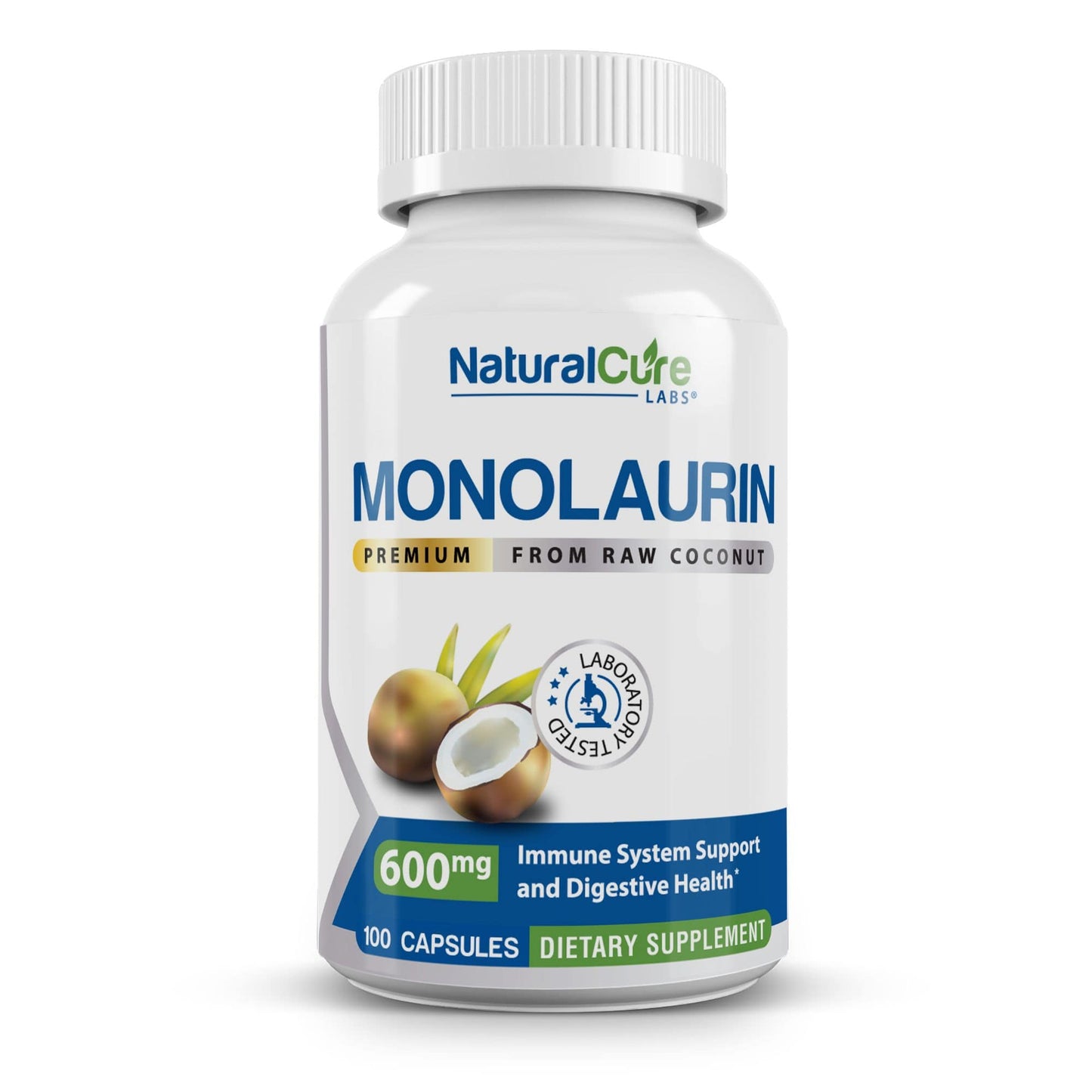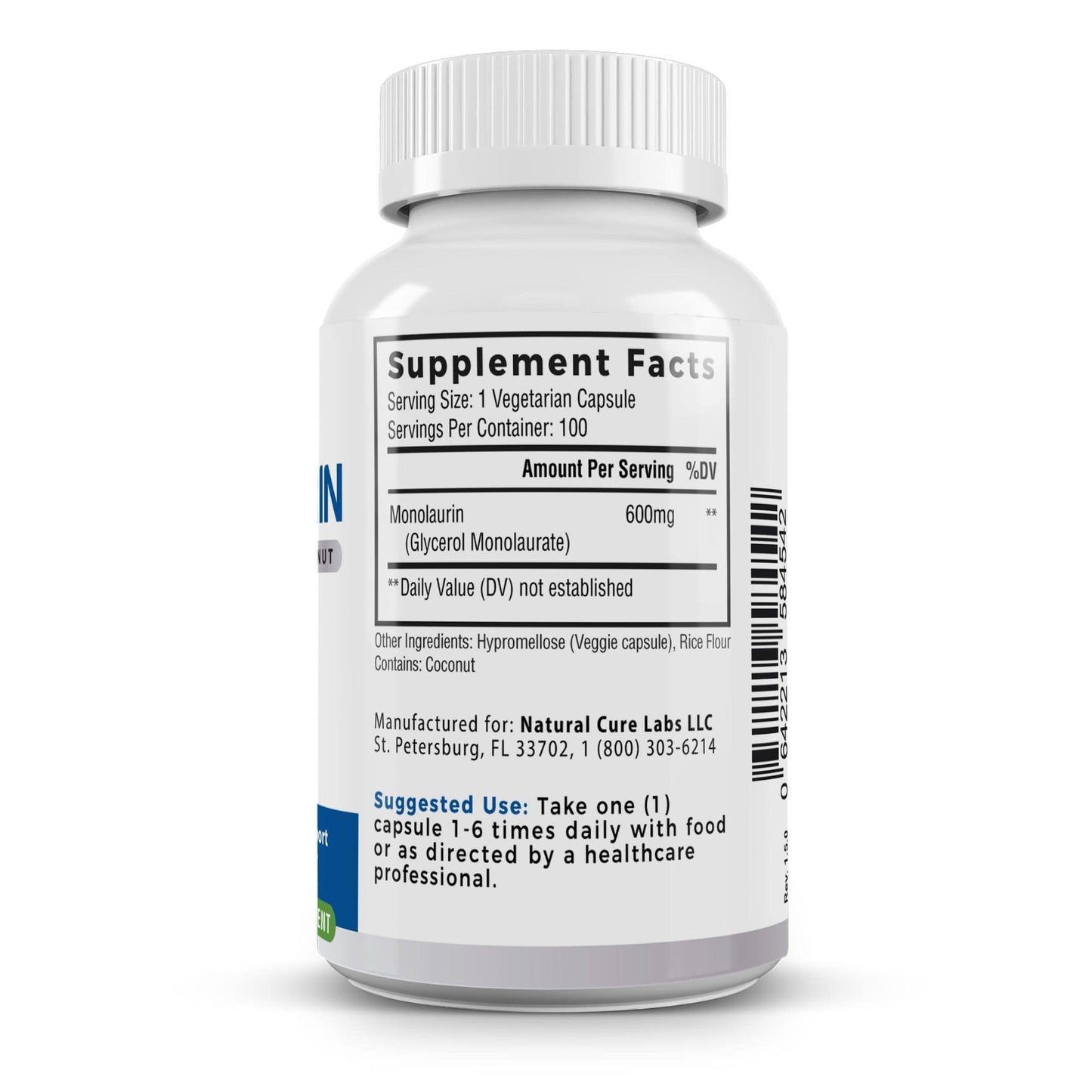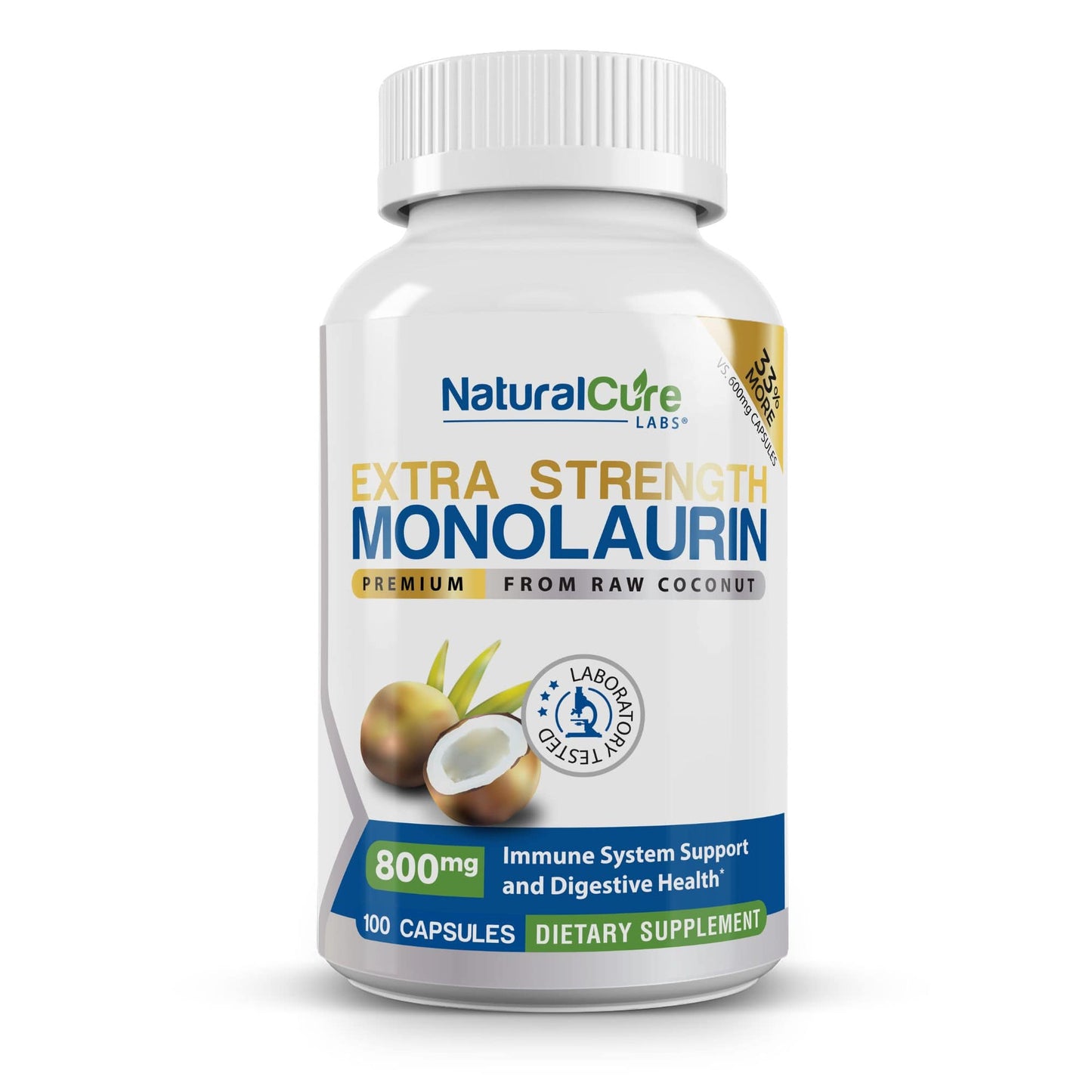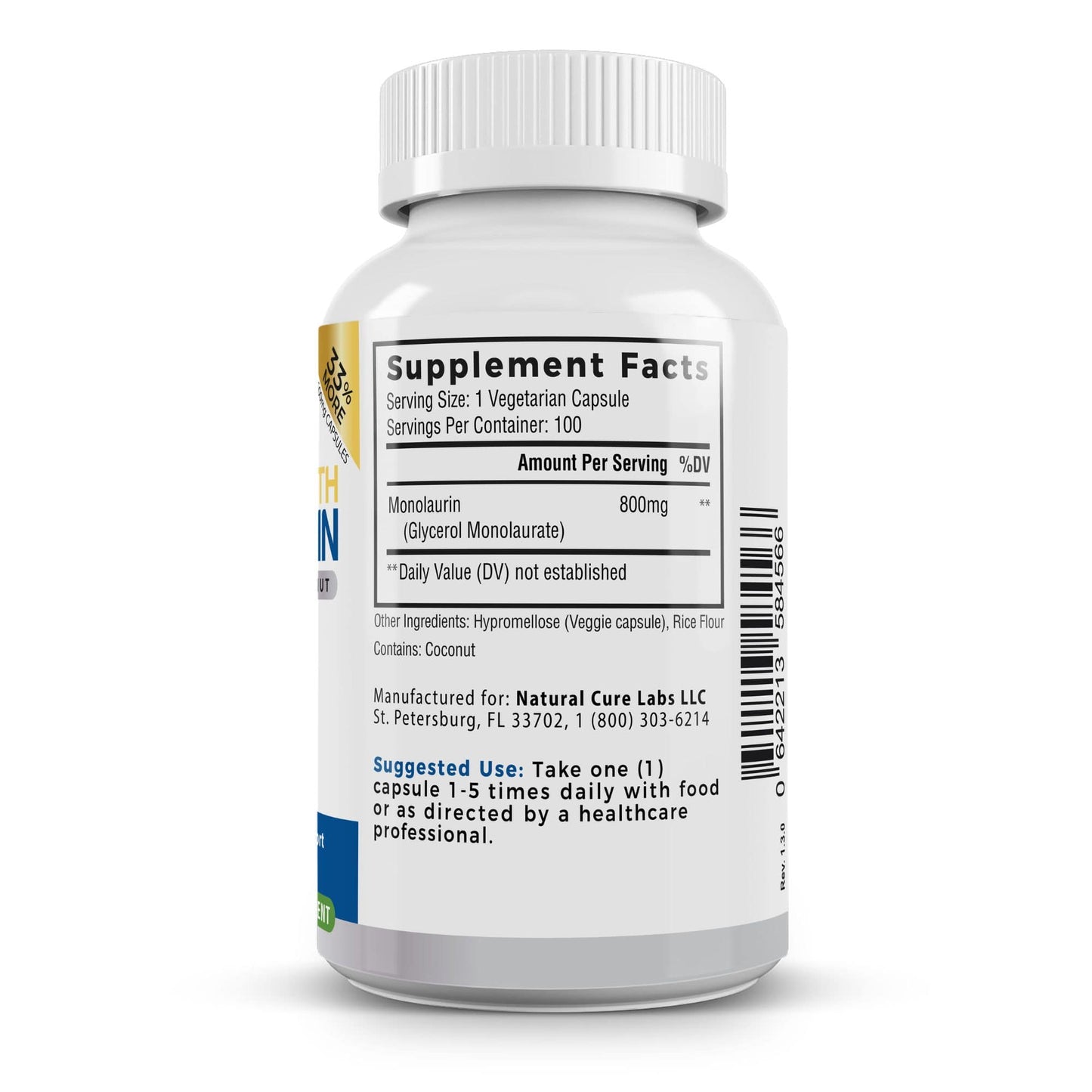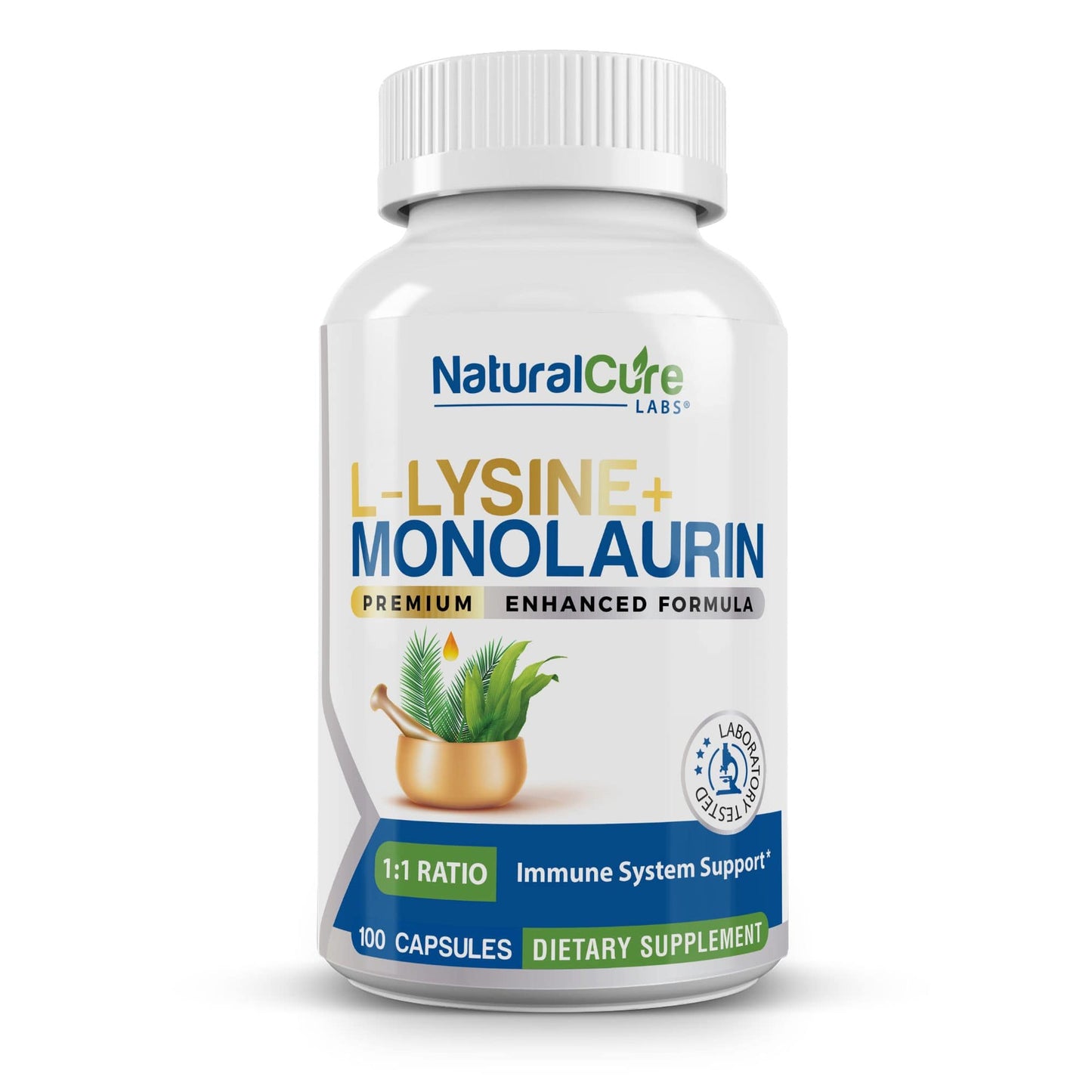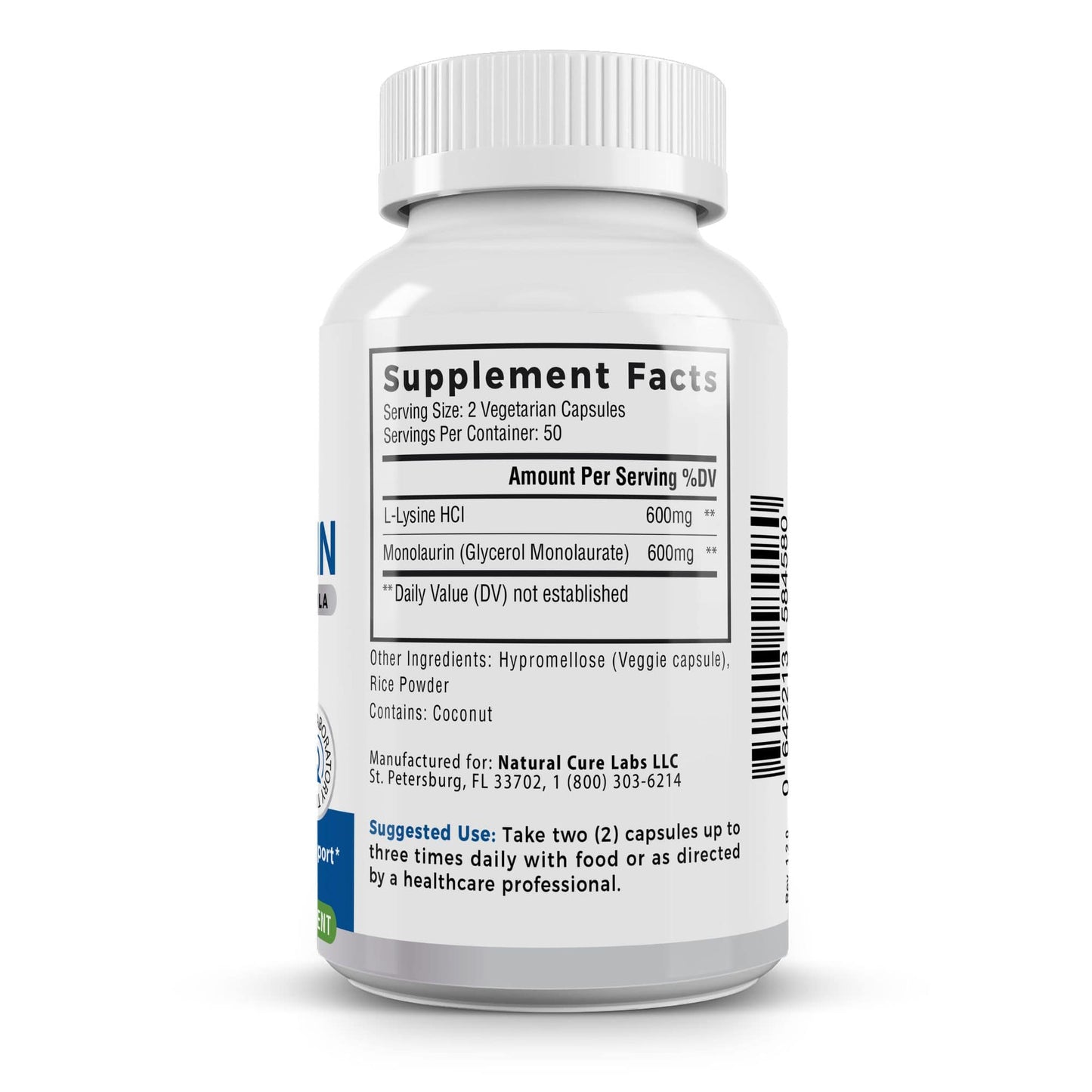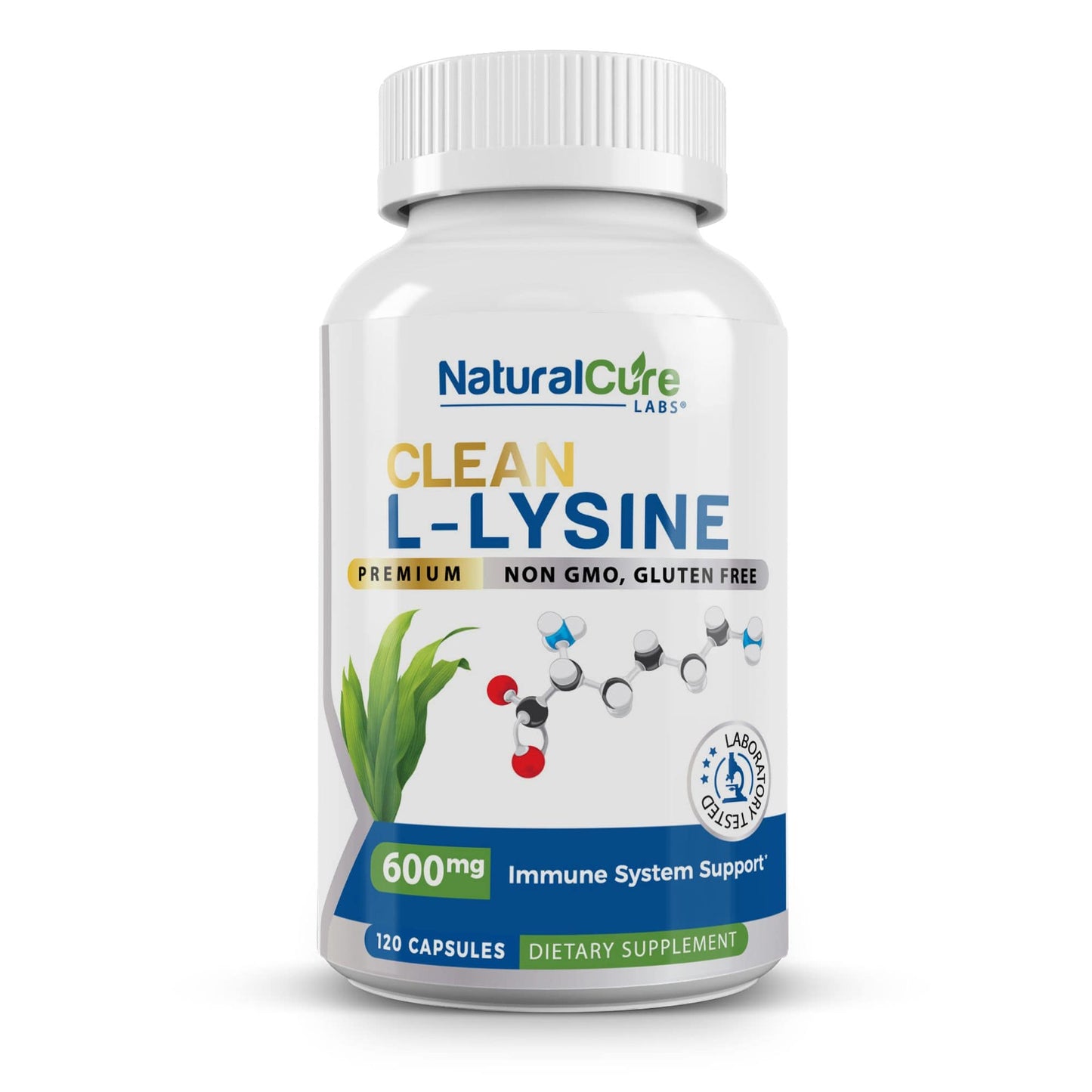
📝 Medically reviewed by Dr. Patricia Shelton
🔍 Last updated September 3, 2024
📚 15 citations
📖 4 minute read
About the Author:

Dr. Patricia Shelton, MD, has been a medical communicator and educator since 2014. She holds a Doctor of Medicine degree as well as a Bachelor's degree in Neuroscience, both from the University of Washington in Seattle.
–
Jump To:
What Is L-Lysine?
L-Lysine is one of the nine essential amino acids your body requires to function correctly. It plays an important role in muscle maintenance and repair, immune system function, and the production of enzymes and hormones. L-Lysine has been studied for its potential to support the body's natural defenses, including dealing with cold sores (which are caused by a virus) and other immune challenges.¹
Since the body cannot naturally produce L-Lysine, it must be obtained through diet or supplementation (L-lysine is also known simply as lysine; these two terms refer to the same molecule).
How Much L-Lysine Do You Need?
While there is no established Recommended Dietary Allowance (RDA) for lysine specifically, experts generally recommend around 30 mg of lysine per kilogram of body weight per day for adults. For a person weighing 70 kg (about 154 lbs), this translates to around 2,100 mg of lysine per day.¹⁵
See Related: What Can L-Lysine Do For Your Skin?
10 Foods That Are High in L-Lysine
1. Chicken
Chicken is an excellent source of high-quality protein, including L-Lysine. A single chicken breast contains over 4,000 mg of lysine. This makes it a staple for those looking to boost their L-Lysine intake.²

2. Turkey
Much like chicken, turkey is another lean protein that’s packed with L-Lysine. A typical turkey breast contains around 3,500 mg of lysine per serving, making it a great choice for those seeking to maintain healthy muscle and immune function.³
3. Pork
Pork is not only a rich source of lysine, but it also provides other essential nutrients like vitamin B12 and iron. A 3-ounce serving of pork offers approximately 3,200 mg of lysine.⁴
4. Eggs
Eggs are one of the most versatile and nutrient-dense foods, providing a good amount of L-Lysine. A large egg contains about 900 mg of lysine, making it a great option for breakfast or snacks.⁵

5. Cold-Water Fatty Fish (Salmon and Tuna)
Salmon and tuna are rich in L-Lysine and provide healthy omega-3 fatty acids, which support heart health. A 3-ounce serving of salmon delivers about 2,000 mg of lysine, while tuna provides slightly less at around 1,700 mg.⁶
6. Parmesan Cheese
Cheese, particularly parmesan, is a fantastic source of L-Lysine. One ounce of parmesan cheese contains about 900 mg of lysine, making it a great addition to salads or pasta.⁷

7. Soybeans
Soybeans are one of the best plant-based sources of L-Lysine, making them particularly beneficial for vegetarians and vegans. One cup of cooked soybeans contains about 2,200 mg of lysine. Soy-based products like tofu and tempeh also provide significant amounts of this essential amino acid.⁸
8. Lentils
Lentils are a great plant-based protein source that’s also high in lysine. A cup of cooked lentils provides about 1,200 mg of lysine, making them an excellent option for those looking to add more plant-based protein to their diet.⁹
9. Quinoa
Quinoa is a complete protein, meaning that it contains all nine essential amino acids, including lysine. One cup of cooked quinoa contains around 450 mg of lysine, making it a nutritious and versatile grain to include in meals.¹⁰

10. Pumpkin Seeds
Pumpkin seeds are a great snack option for boosting L-Lysine intake. A quarter-cup serving of pumpkin seeds contains about 360 mg of lysine, making them a great addition to your diet.‡¹¹
Bonus #1: L-Lysine Capsules

L-Lysine supplements are available in capsule form, making it easy to ensure you’re getting adequate amounts of this essential amino acid. These supplements are particularly useful for individuals who may struggle to get enough lysine through their diet alone.‡¹²
Bonus #2: L-Lysine and Monolaurin Combo Capsules

For those seeking immune support, combining L-Lysine with Monolaurin can provide a synergistic effect. Supplements like the L-Lysine and Monolaurin Combo offer immune-boosting properties, providing additional benefits for those looking to support their body’s natural defenses.‡¹³
"I have been taking this supplement for about a week, can tell the difference. Will definitely stick to it.
- Karine (January 12, 2024)
"Great feel like it’s working for my immunity!"
- Catherine Herrera (August 21, 2024)
Why Is L-Lysine Important?
L-Lysine is essential for various bodily functions, including protein synthesis and tissue maintenance and muscle repair. It is also important for supporting general wellness. Adequate L-Lysine intake is necessary for maintaining a well-functioning immune system and overall good health‡. While studies continue to explore its health benefits, L-Lysine should be consumed as part of a balanced diet or through supplements to help meet the body's daily nutritional needs.‡¹⁴
Whether through food or supplements, getting enough L-Lysine is essential for your overall health.
Final Thoughts
Ensuring you get enough L-Lysine from foods or supplements is crucial for maintaining good health. Incorporating L-Lysine-rich foods like chicken, fish, eggs, and soybeans into your daily diet can help support your body's needs. For those who need an extra boost, supplements like L-Lysine capsules or the L-Lysine and Monolaurin combo offer an easy and effective way to ensure adequate intake.‡
Keep Reading: How Can Monolaurin Support Skin And Hair Health?
References
- Civitelli, R., Villareal, D. T. (2008). Lysine in nutrition and health. Nutrition Journal, 7, 28. DOI: 10.1186/1475-2891-7-28
- USDA FoodData Central. Chicken Breast, Cooked, Skinless. USDA.
- USDA FoodData Central. Turkey Breast, Cooked, Skinless. USDA.
- USDA FoodData Central. Pork, Cooked, Lean Only. USDA.
- USDA FoodData Central. Egg, Whole, Raw. USDA.
- Harper, A. E. (1984). The Role of Amino Acids in Nutrition. Physiological Reviews, 64(1), 223-245. DOI: 10.1152/physrev.1984.64.1.223
- USDA FoodData Central. Cheese, Parmesan, Hard. USDA.
- Messina, M. (1999). Legumes and Soybeans: Overview of their Nutritional Profiles and Health Effects. The American Journal of Clinical Nutrition, 70(3), 439-450. DOI: 10.1093/ajcn/70.3.439S
- USDA FoodData Central. Lentils, Cooked. USDA.
- USDA FoodData Central. Quinoa, Cooked. USDA.
- USDA FoodData Central. Pumpkin Seeds, Dried. USDA.
- Liener, I. E., & Kakade, M. L. (1980). Toxic Constituents of Plant Foodstuffs. Academic Press, 101-109. DOI: 10.1016/B978-0-12-449150-4.50010-3
- Isaacs, C. E., Thormar, H. (1991). The Role of Milk-Derived Antimicrobial Lipids as Antiviral and Antibacterial Agents. Advances in Experimental Medicine and Biology, 310, 159-165. DOI: 10.1007/978-1-4615-4018-9_19
- Gibson, M. M., et al. (2014). Lysine supplementation in immune function. International Journal of Immunopathology and Pharmacology, 27(4), 515-522. DOI: 10.1177/039463201402700405
- World Health Organization (WHO). (2007). Protein and amino acid requirements in human nutrition. WHO Technical Report Series.
--
‡ These statements have not been evaluated by the Food and Drug Administration. This product is not intended to diagnose, treat, cure, or prevent any disease.
Natural Cure Labs provides dietary supplements made from naturally derived ingredients. Our research-backed products contain premium botanicals and antioxidants that encourage healthy living and holistic wellness. Each high-quality product comes with a Clean Label that certifies our commitment to quality, transparency, and research. To stay connected and learn more, follow us on Facebook, Instagram, and TikTok.

